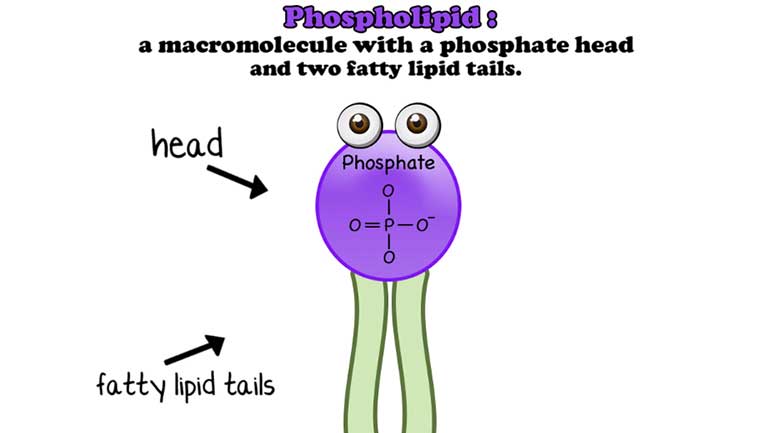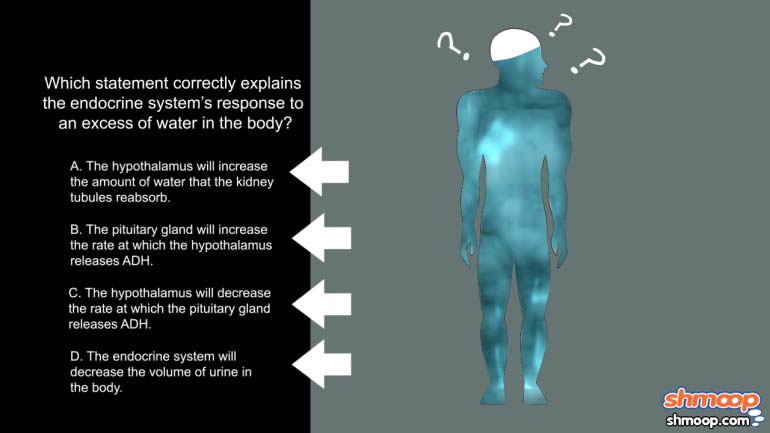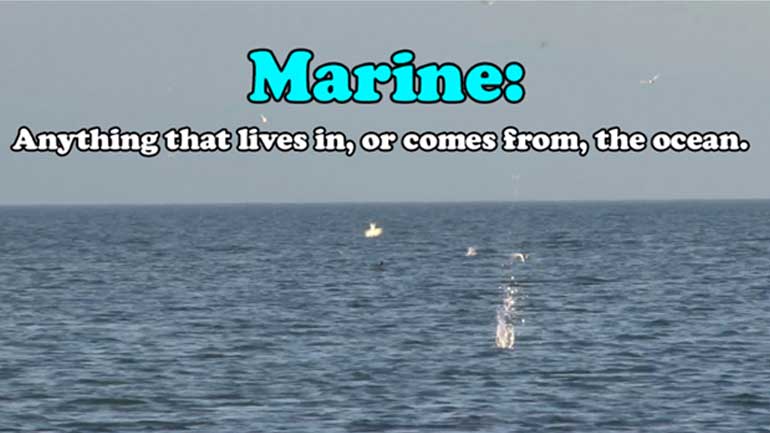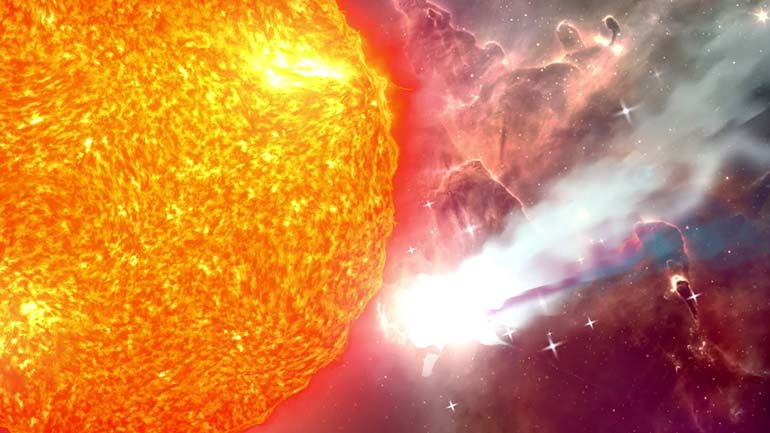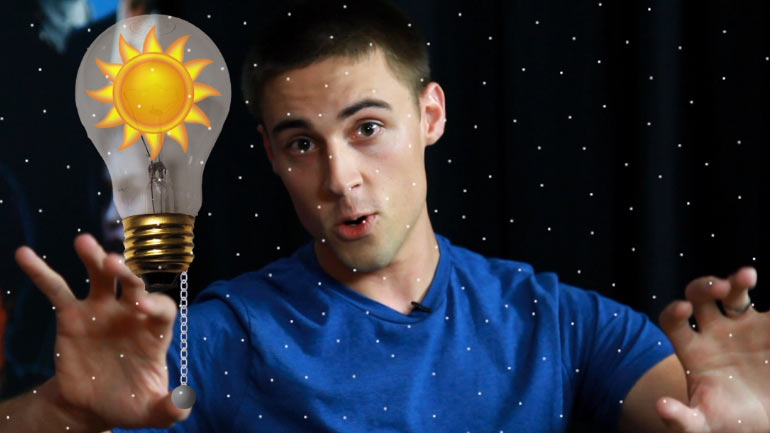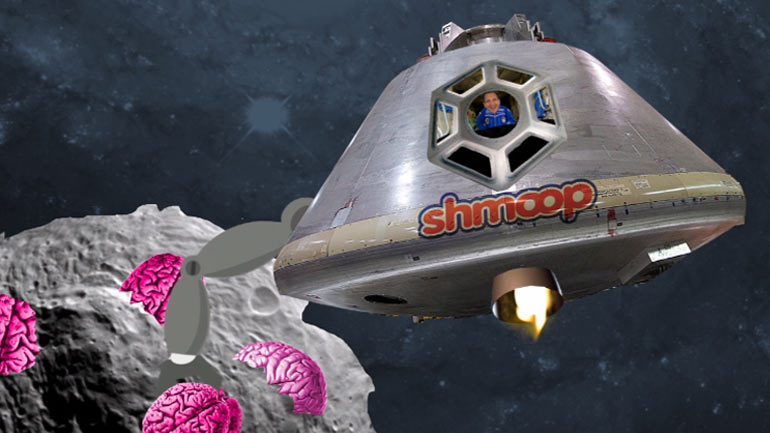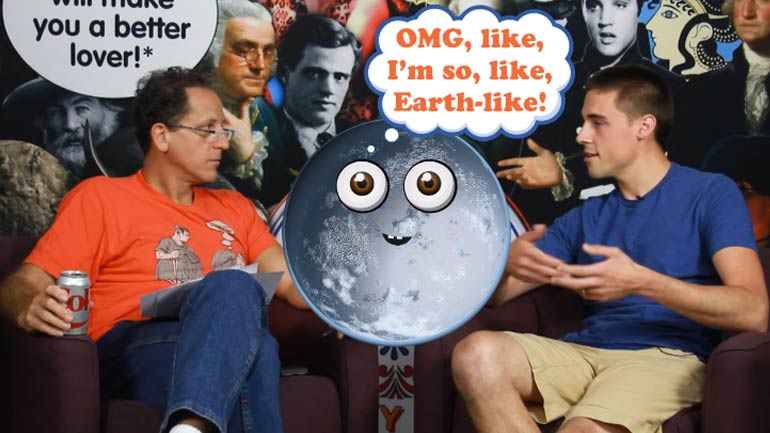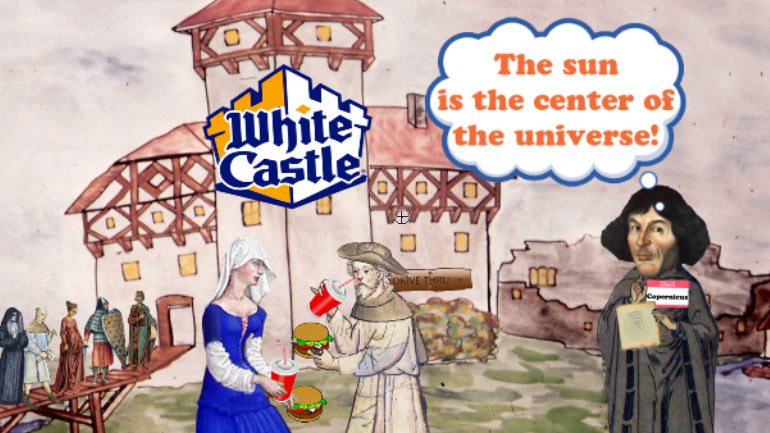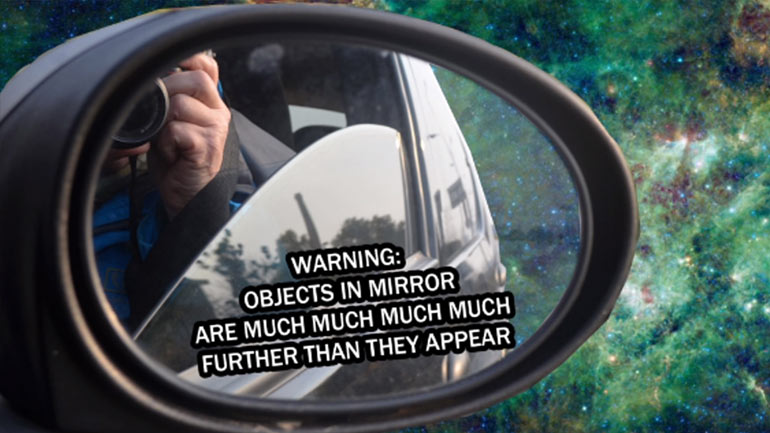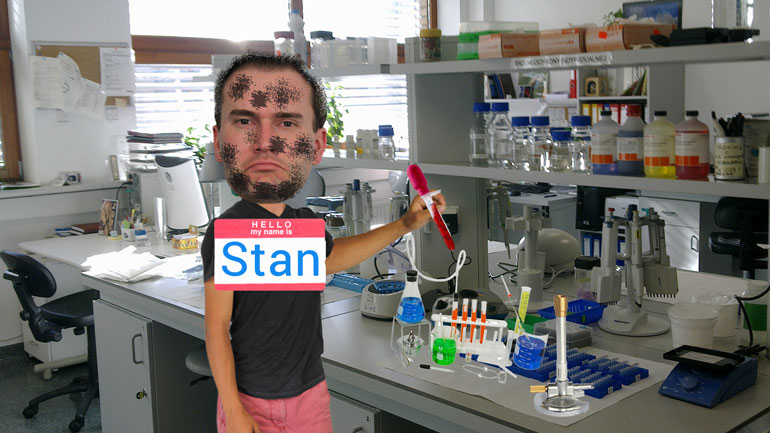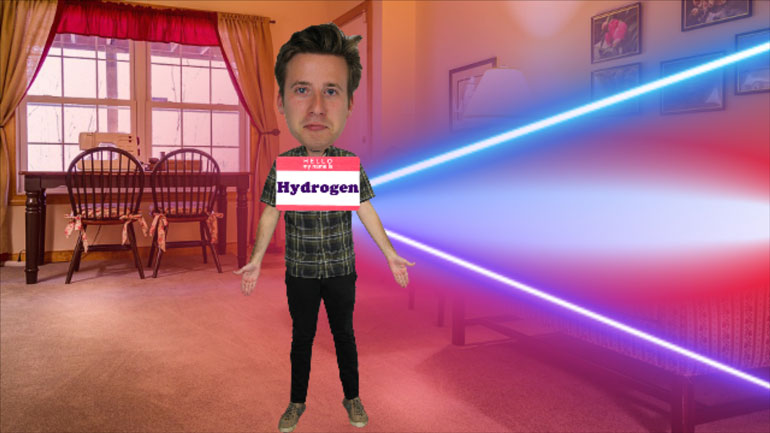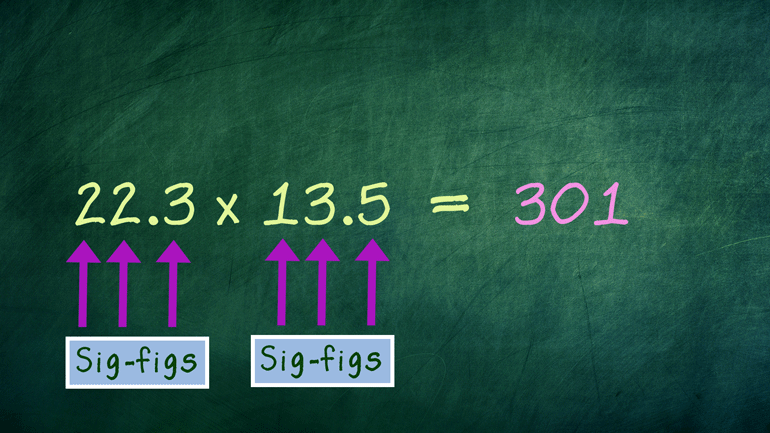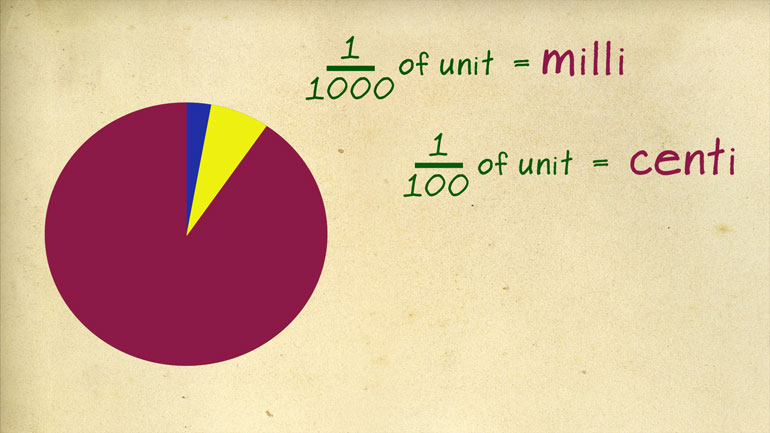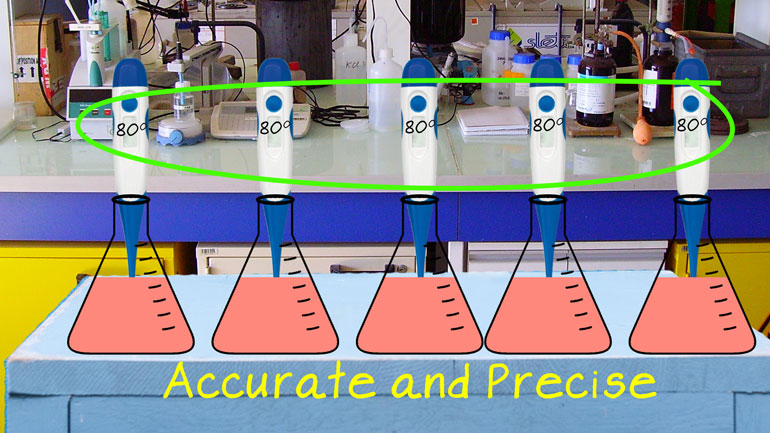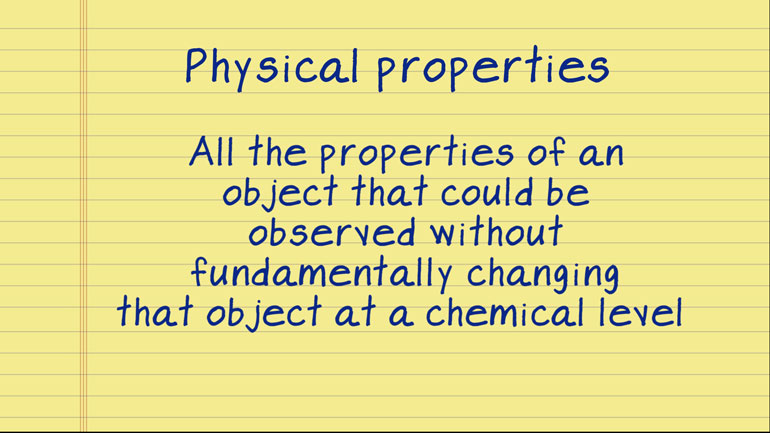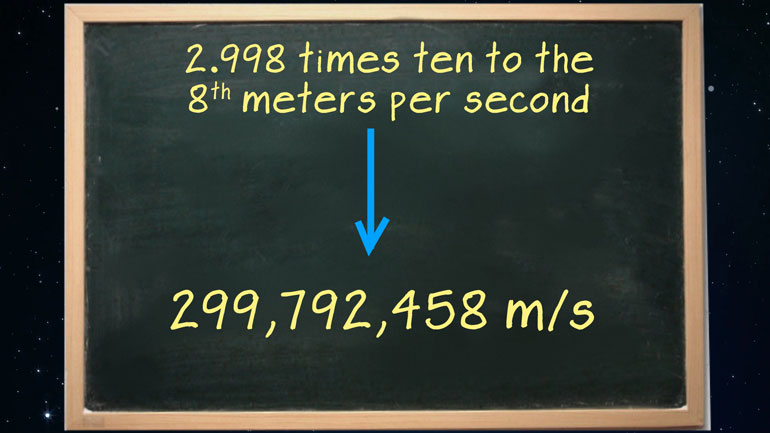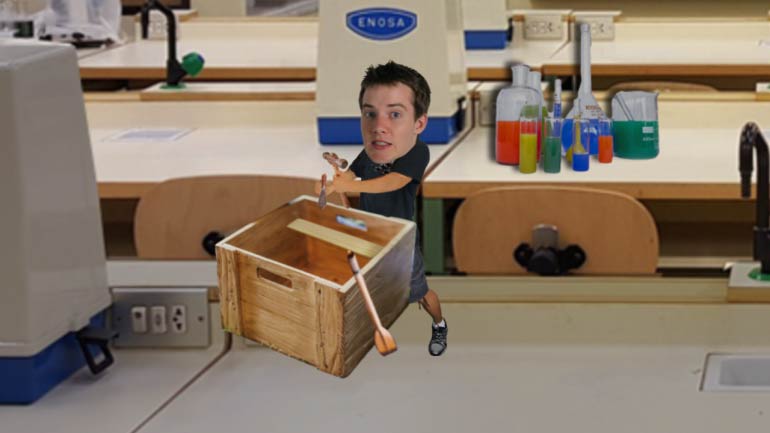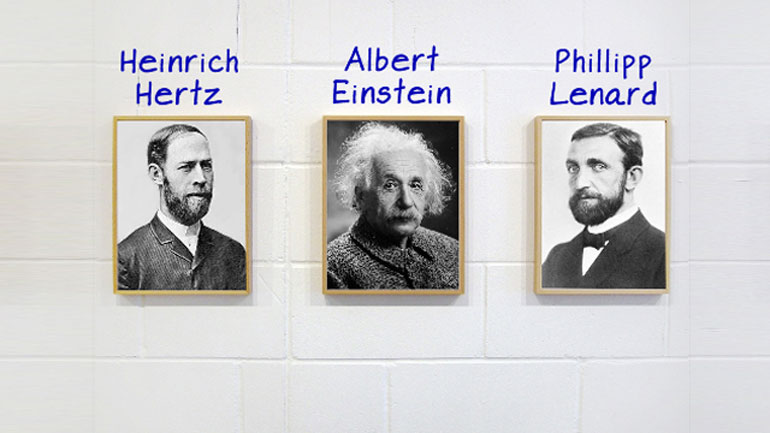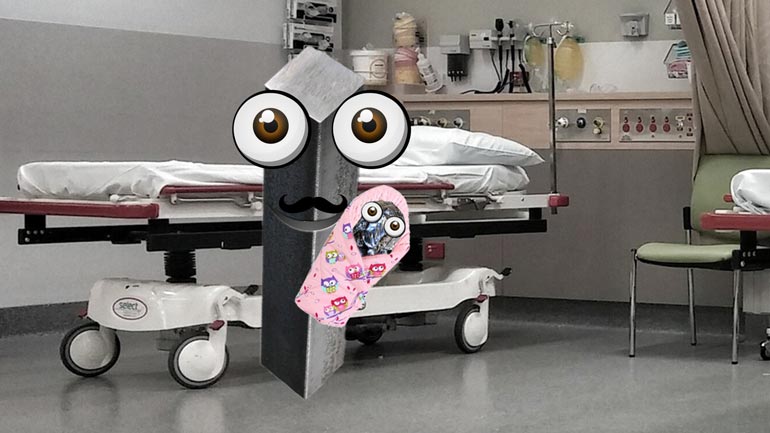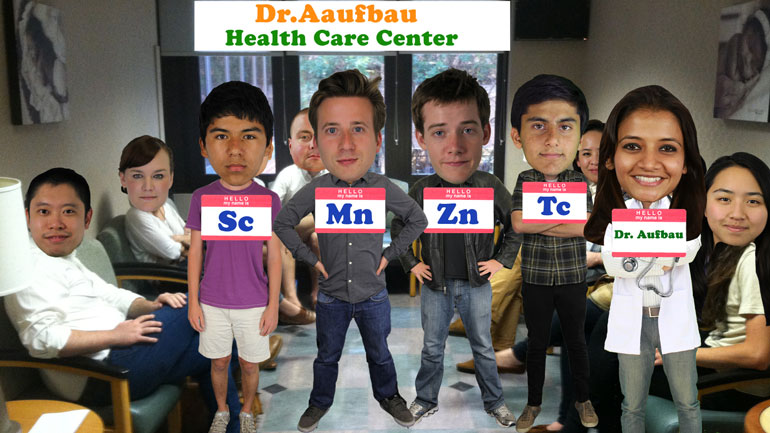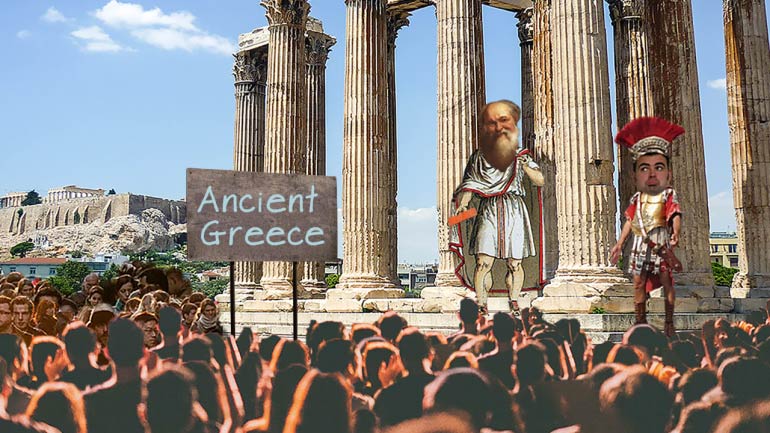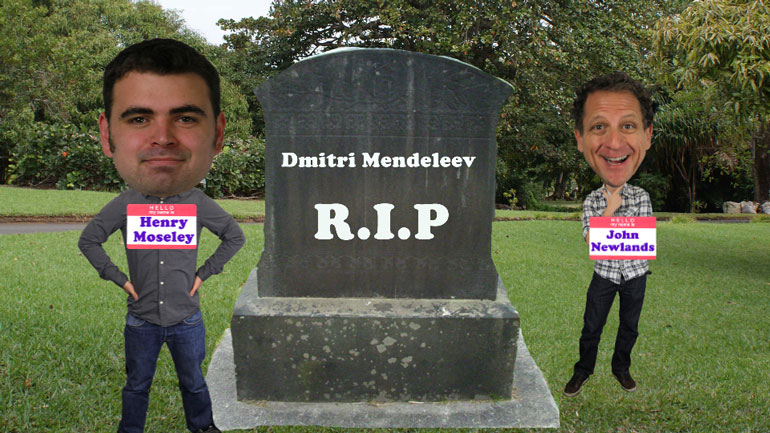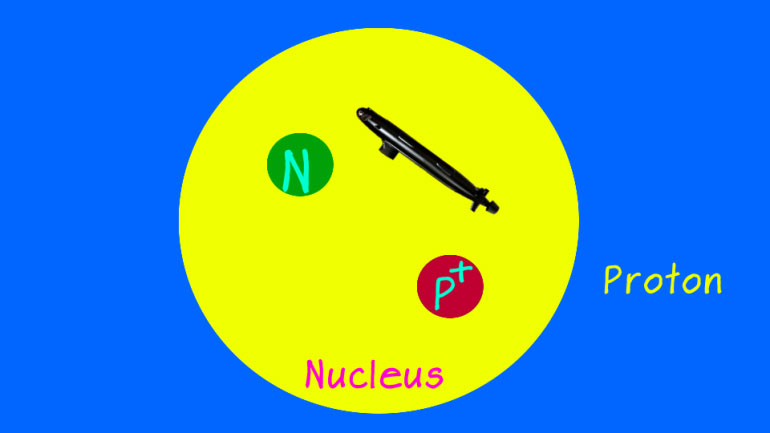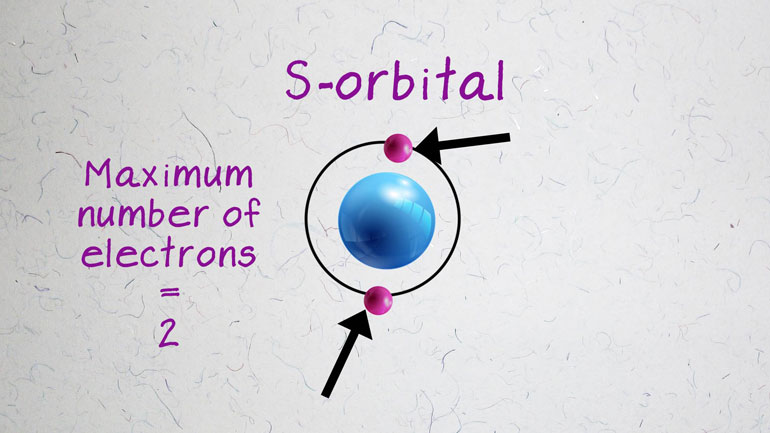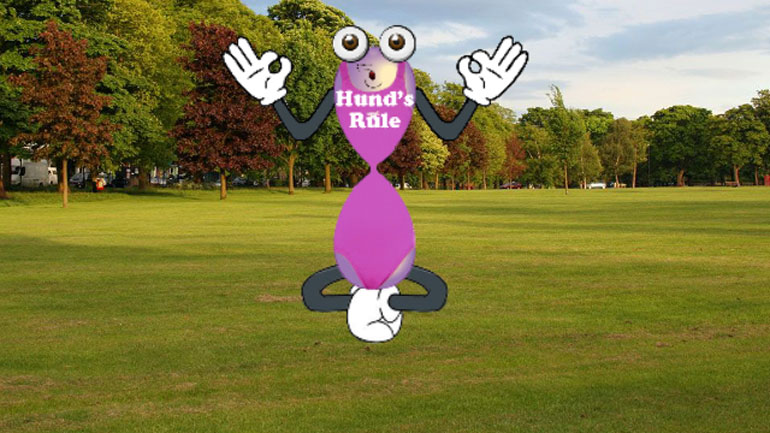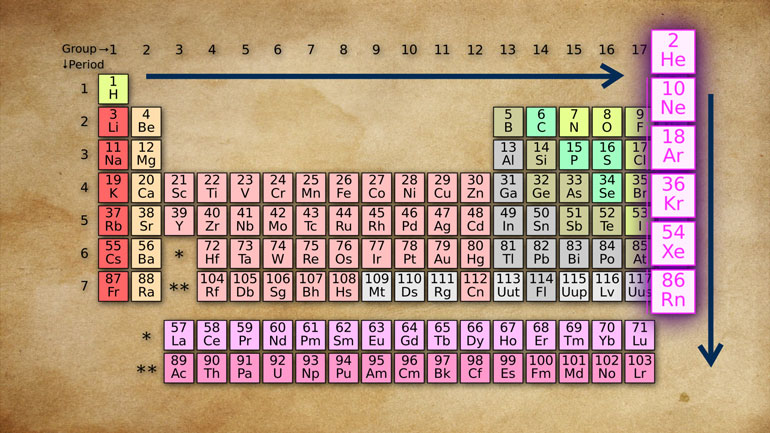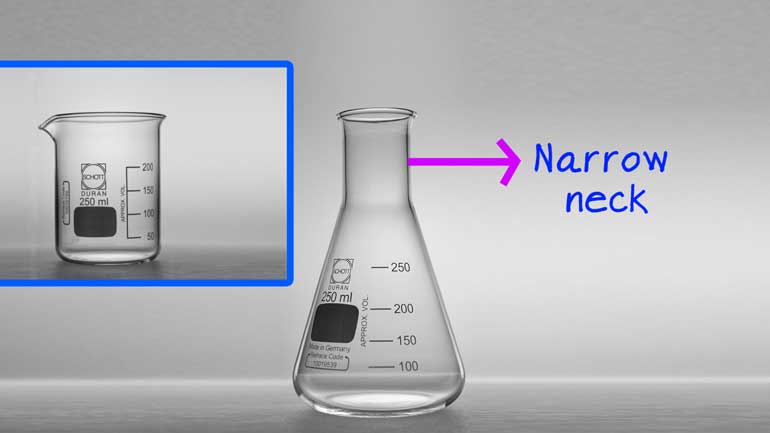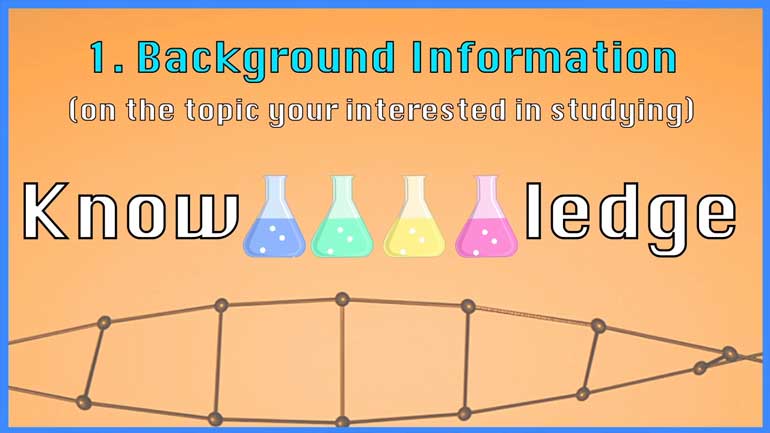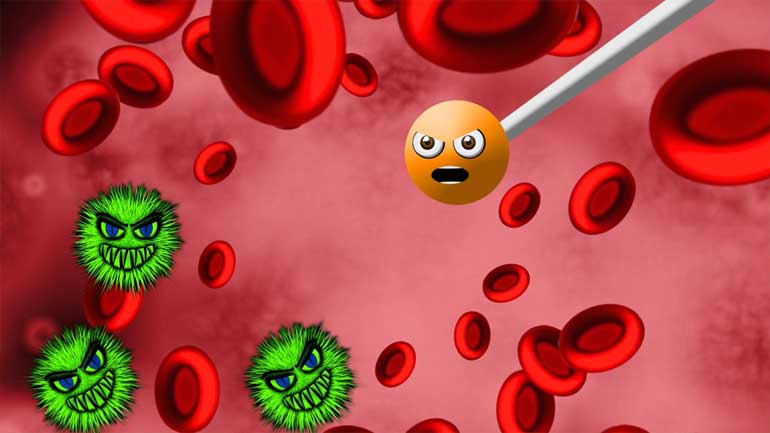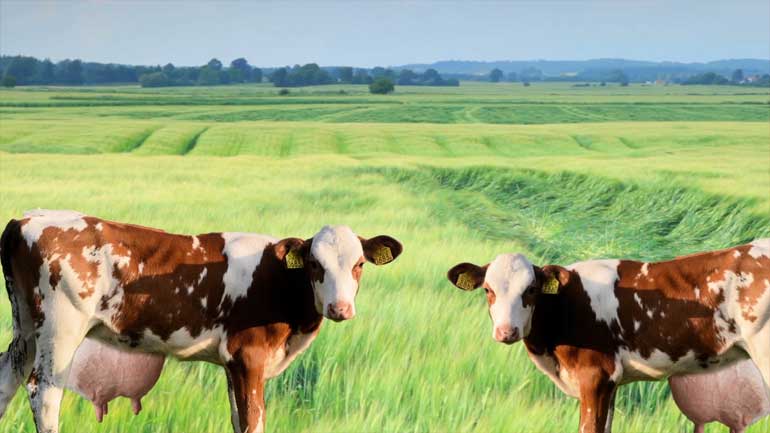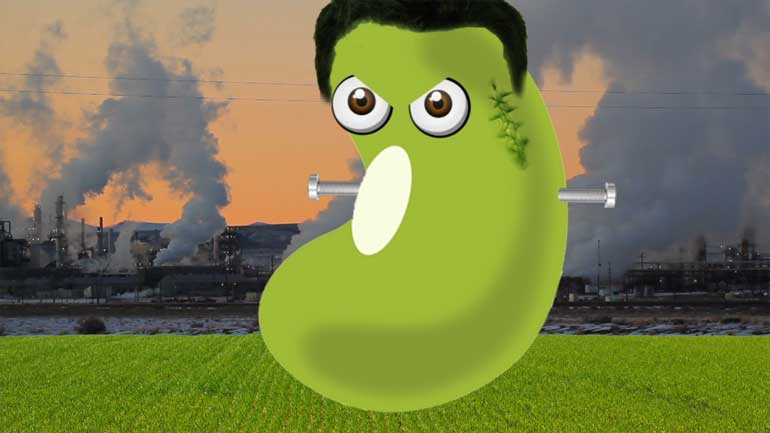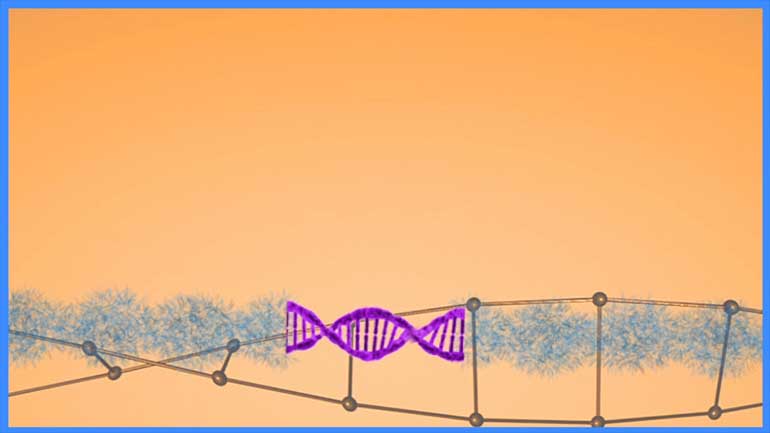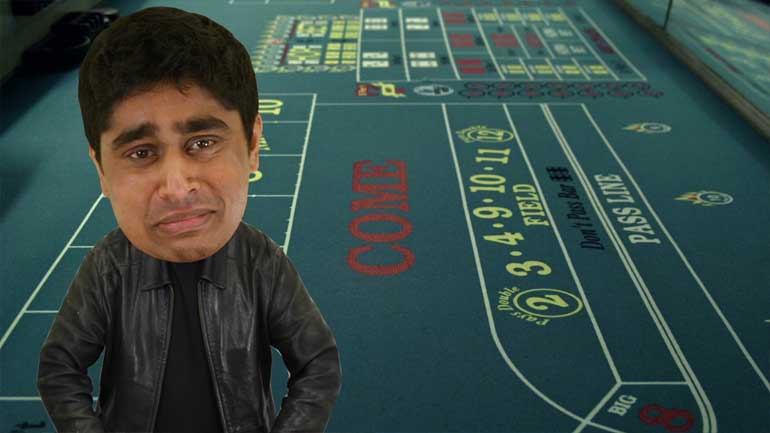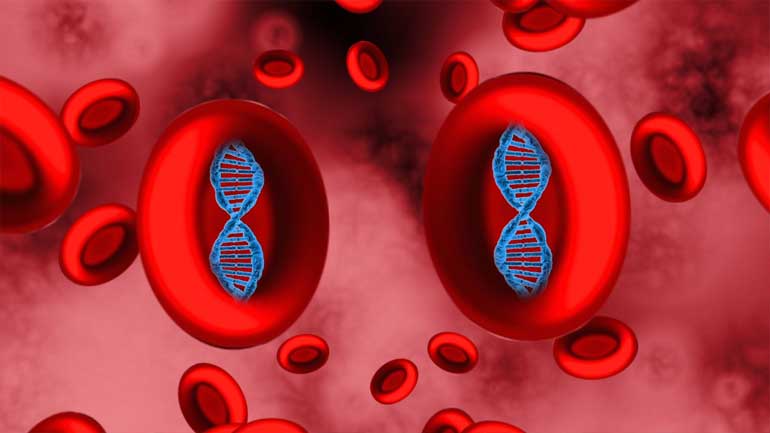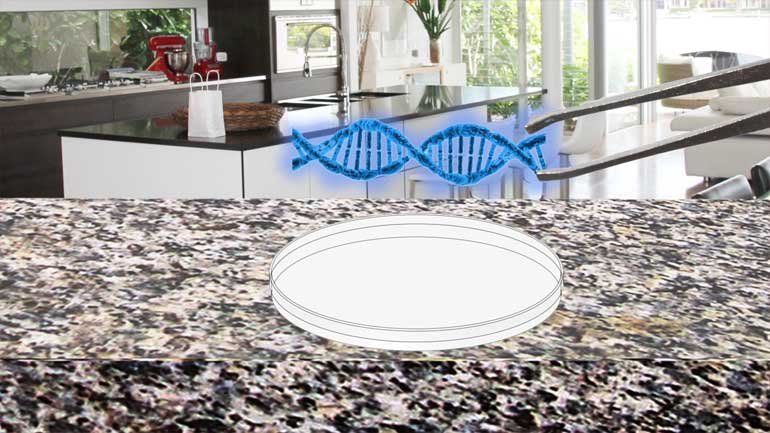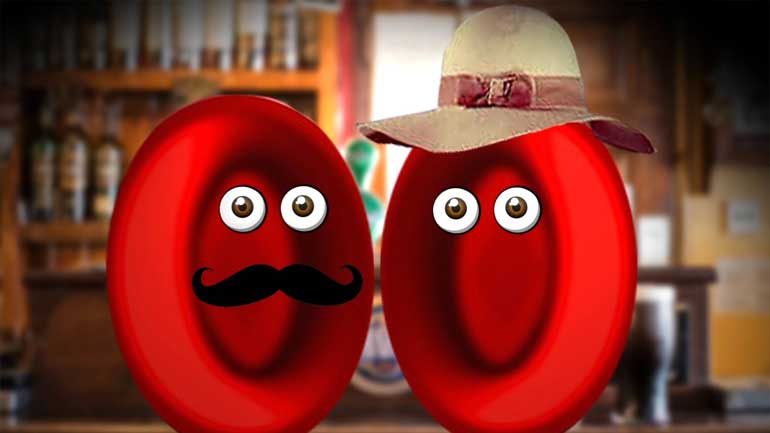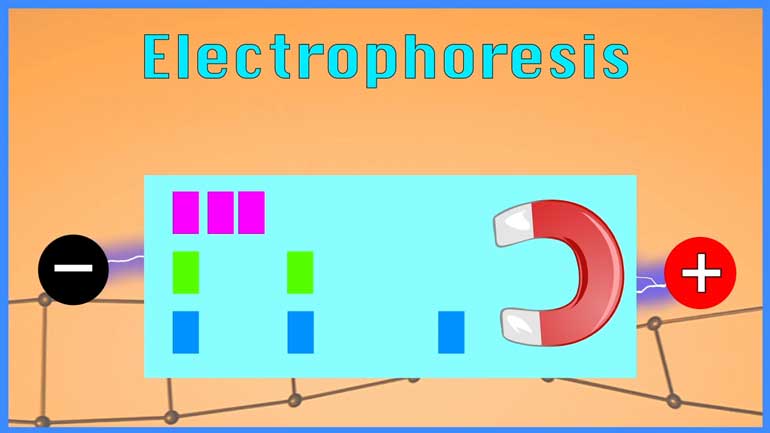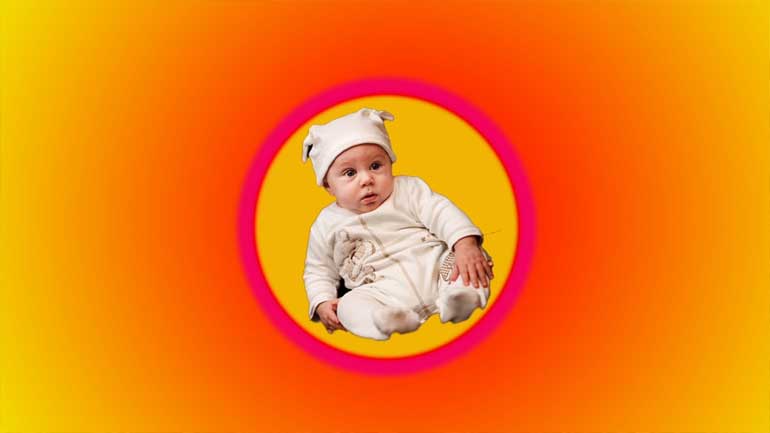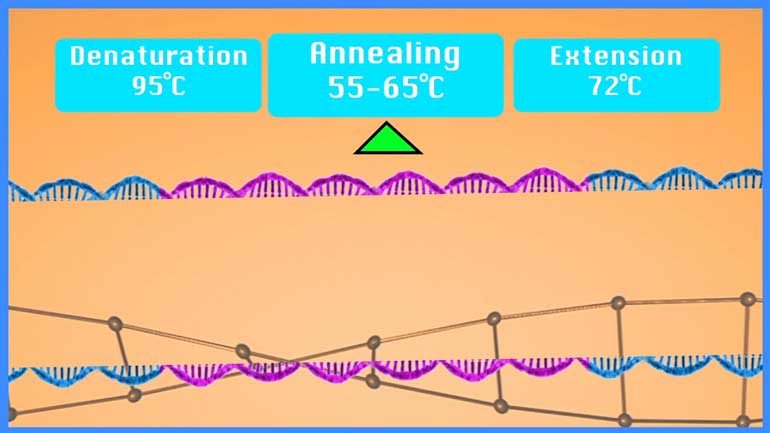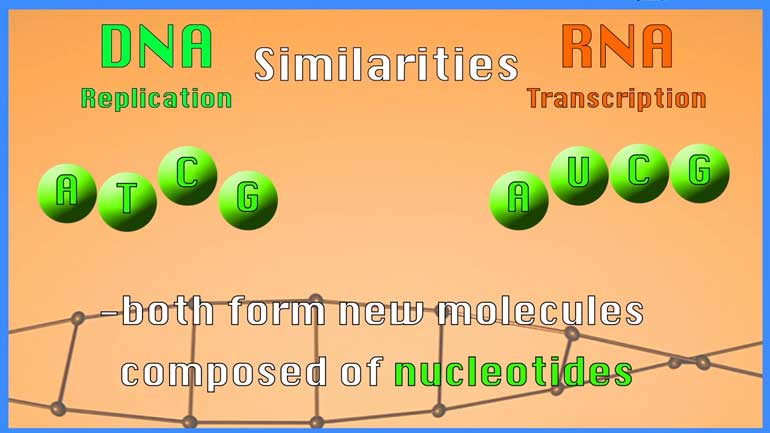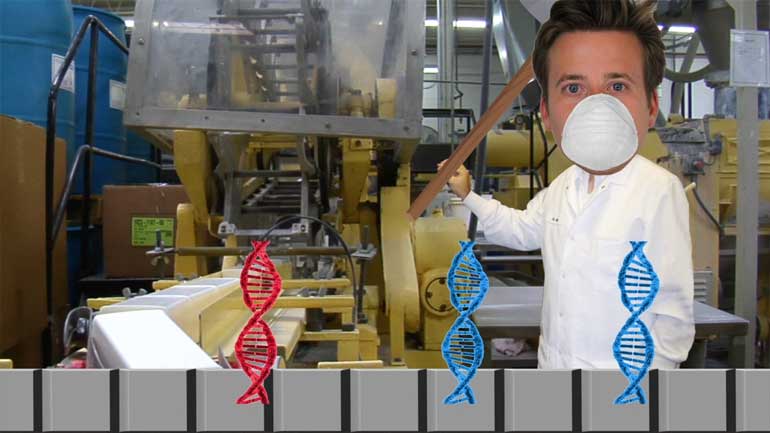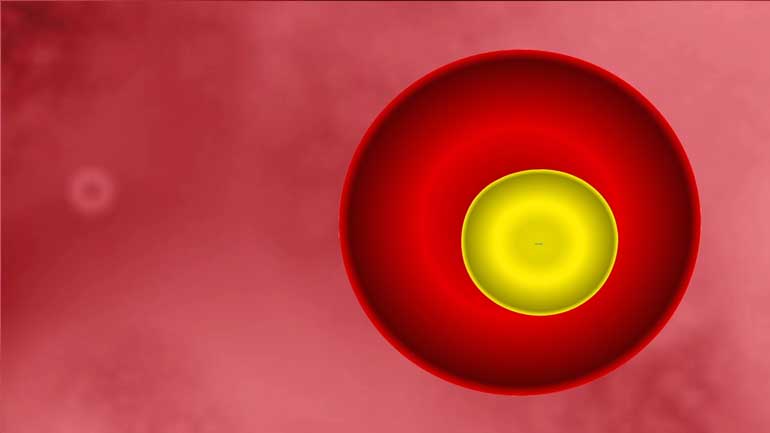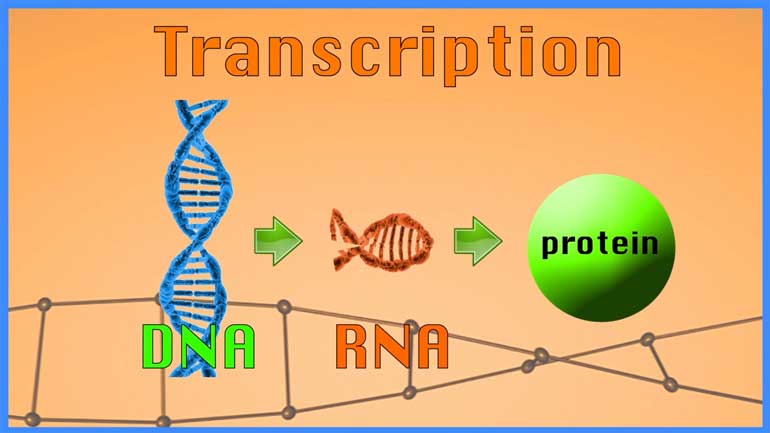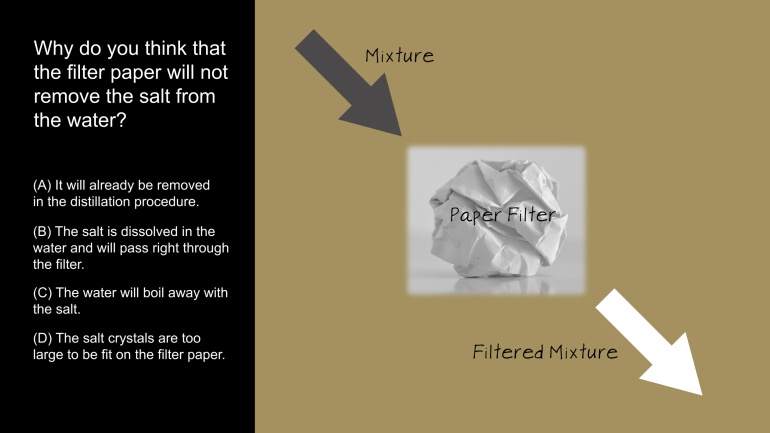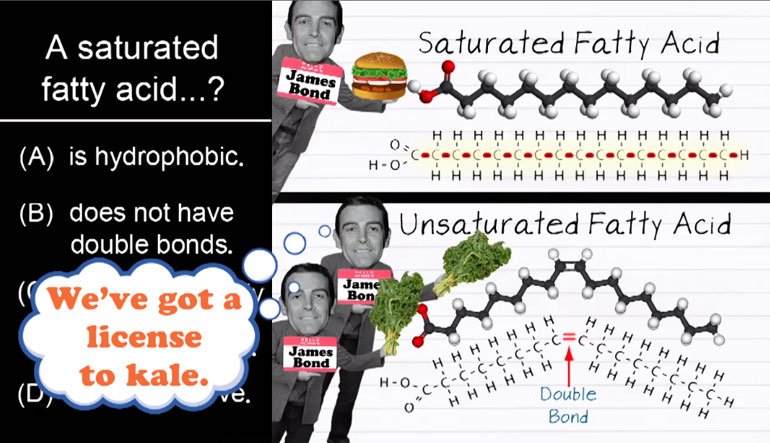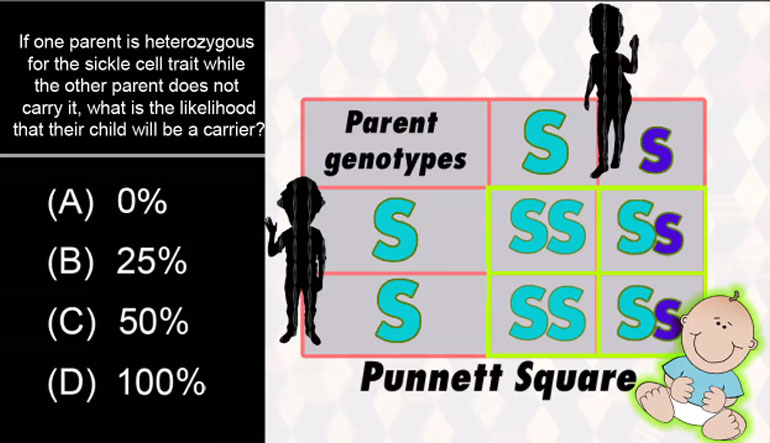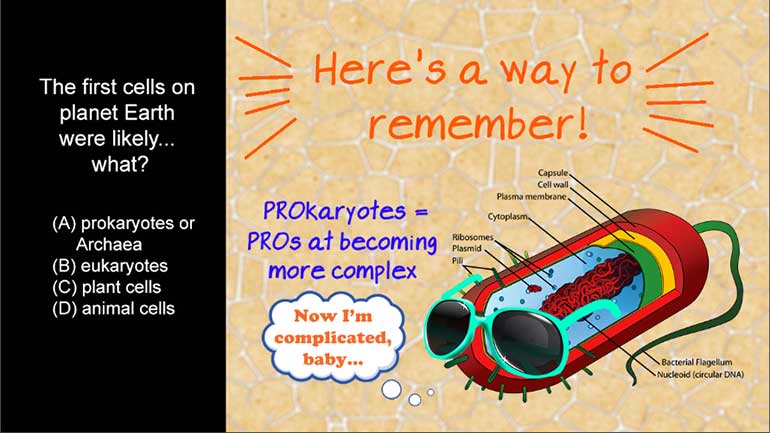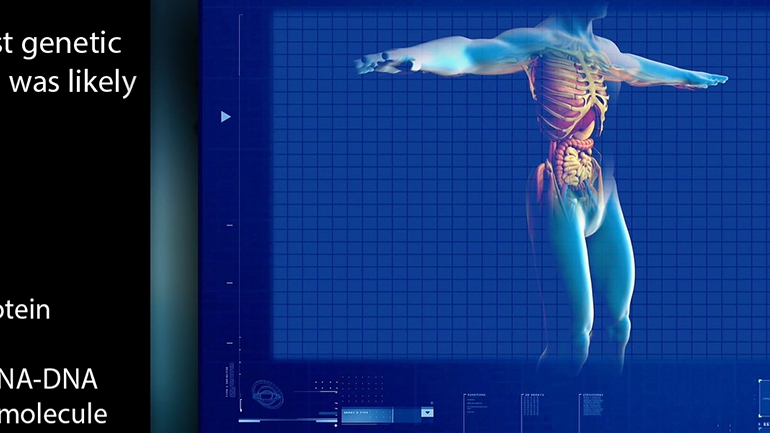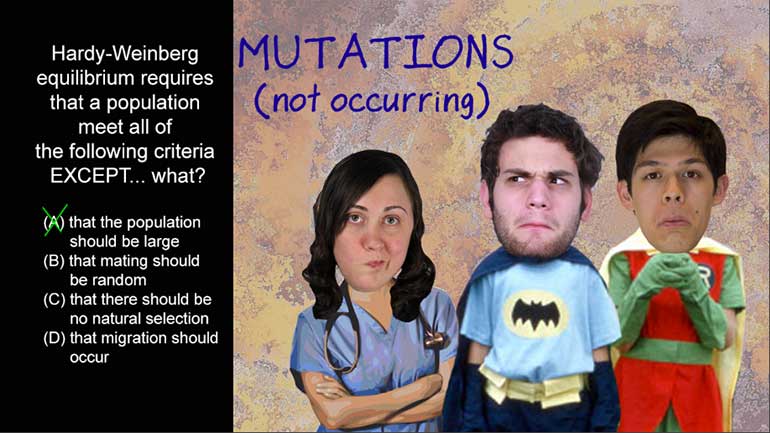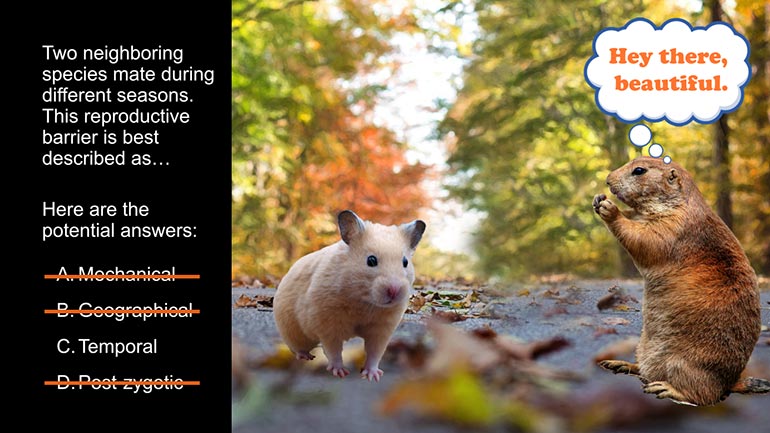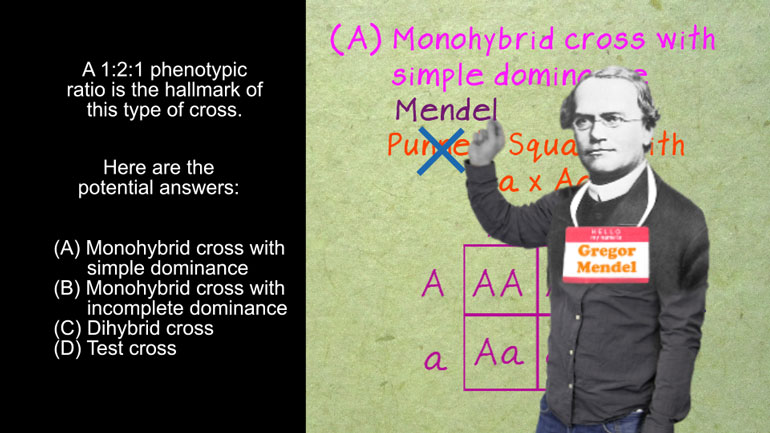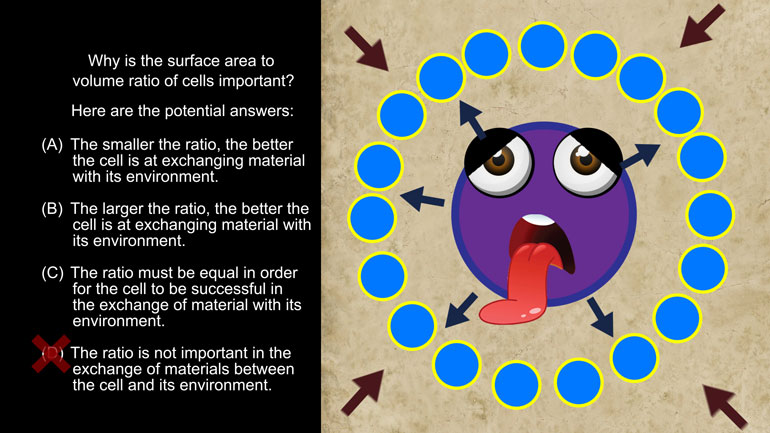ShmoopTube
Where Monty Python meets your 10th grade teacher.
Search Thousands of Shmoop Videos
Science Videos 686 videos
Anything that has a cell (bacteria, listen up!) has phospholipids that keep the cell contained and give it form and shape. Phospholipids protect us...
GMOs. Now that’s a scary word. Or is it? Guess it’s time to ask ourselves: WWMST? ...For those of us who don’t constantly ask ourselves “wh...
AP Biology 1.2 Evolution Drives the Diversity and Unity of Life 459 Views
Share It!
Description:
AP® Biology: Evolution Drives the Diversity and Unity of Life Drill 1, Problem 2. What was likely the first genetic material?
Transcript
- 00:03
Here's your shmoop du jour, brought to you by gene material.
- 00:07
Denim, actually.
- 00:09
The first genetic material was likely... what?
- 00:12
And here are the potential answers...
- 00:19
Ok, so to determine which of the answer choices was the "first" genetic material, let's look
Full Transcript
- 00:24
at the molecules in our answer choices...
- 00:26
DNA, RNA, proteins, an RNA-DNA hybrid molecule?
- 00:35
Well, we know the hybrid probably cuts down on fuel emissions... but we're not really
- 00:39
concerned with how "green" it is...
- 00:41
The theory about how life evolved on earth tells us that the first molecules were self-sufficient
- 00:47
because the earth wasn't "made" for us organisms...
- 00:51
and that they were relatively simple because there was nothing else to rely on at first.
- 00:55
Then as successful adaptations were developed due to the changing environment, these molecules
- 00:59
grew more and more complex.
- 01:01
It's how evolution works.
- 01:03
So the "first molecule" we want to find is the one that's the most self-sufficient and simple.
- 01:09
RNA stands for Ribonucleic acid.
- 01:15
It serves several functions in creating proteins for living cells...
- 01:19
It can act as a messenger to carry copies of genetic material...
- 01:23
...transfer amino acids to make proteins, and even self-replicate.
- 01:28
We'd say that's pretty self-sufficient.
- 01:30
We've also heard all about DNA when watching CSI...
- 01:34
and how it carries all of our genetic material...
- 01:37
and how we should never leave our DNA anywhere if we want to get away with some horrific crime.
- 01:43
DNA is a molecule that stands for Deoxy-ribonucleic acid....
- 01:47
which basically differentiates itself from RNA by having a different sugar base...
- 01:52
Deoxyribose instead of ribose.
- 01:55
Hence the difference between the D and R.
- 01:58
But as a piece of genetic material, it only contains the genetic blueprint.
- 02:02
Unlike RNA, it can't self-replicate or create proteins without RNA. So... not too self-sufficient.
- 02:11
Think about C. Proteins?
- 02:12
Well they're needed to interpret genetic information, but they're also the
- 02:16
product of the transformation from DNA to RNA.
- 02:20
So they can't be the first.
- 02:21
Finally, an RNA-DNA hybrid molecule would be nice as the first piece of genetic material...
- 02:27
but based on what we know about RNA, RNA doesn't really need DNA to function on its own.
- 02:34
RNA by itself is simpler...
- 02:36
So RNA is our first genetic material.
- 02:39
Answer's B.
- 02:40
Did you fill in that bubble all by yourself?
- 02:43
NOW who's self-sufficient?
Related Videos
AP Biology: Biological System Interactions Drill 1, Problem 1. Complete the sentence about a saturated fatty acid.
AP Biology: Essential Life Process Information Drill 1, Problem 1. If one parent is heterozygous for the sickle cell trait while the other par...
AP Biology: Evolution Drives the Diversity and Unity of Life Drill 1, Problem 1. The first cells on planet Earth were likely what?
AP Biology: Free Energy and Molecular Building Blocks Drill 1, Problem 1. Which statement incorrectly describes the properties of water?
AP Biology: Evolution Drives the Diversity and Unity of Life Drill 1, Problem 4. Hardy-Weinberg equilibrium requires that a population meet al...

